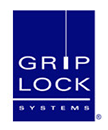Industry News
National Lighting Bureau Year In Review
February 21, 2012
"What a year!” That’s how National Lighting Bureau Chair Howard P. Lewis sums up 2011 and the Bureau’s accomplishments that year. “Our focus has been the existing lighting market,” he said, “trying to encourage and provide guidance about lighting-system improvements. Owners and users of fluorescent T12-lighting systems have been a particular audience. Hundreds of millions – literally, hundreds of millions – of T12 fluorescent lamps are still installed in offices, classrooms, factories, and other facilities nationwide, even though T12 lighting is going to start going the way of the dodo in just about six months, thanks to federal-government regulations designed to reduce energy waste and greenhouse-gas emissions. Those who wait until they have no choice are going to lose out on some extraordinary incentive programs.”
Mr. Lewis – the president of Lighting Alternatives, Inc. (Cherry Hill, NJ) and the Illuminating Engineering Society of North America’s (IES’) representative on the Bureau board of directors – estimates that the Bureau reached “close to ten million people last year, mostly via news releases published in print and electronic media: daily, weekly, and other newspapers; newsletters; the trade press; e-zines and blogs; Facebook, Twitter, and LinkedIn. And not just in the United States and Canada. Within hours after issuing a news release, we’ll see pick-ups in the Philippines, China, Russia, and Australia. Things sure are different. And we’ve also seen Bureau research and case histories used by others who write about lighting on a regular basis or just from time to time. For many, we’re the ‘go-to’ source.”
According to Bureau Executive Director John Bachner, “Many of the publications involved are general-circulation media as well as well-known specialty ‘trade-press’ media that focus on asset and building management, industrial interests of one kind or another, education, public works, and so on. We’re also gratified by the respect we receive from the electrical-industry media in general and lighting media in particular. But for many years, the Bureau has also reached out to media that, frankly, other groups have tended to overlook. We’ve been extremely gratified by their interest in what we have to say, and – in recent years – the extent to which they’ve passed along that information to others, especially now that those others can easily establish information-sharing forums of their own; folks like hobbyists, artisans and craftspeople, jewelry makers, and woodworkers. All of them need lighting, of course, and they demonstrate far more than passing interest in new developments.”
The Bureau’s website – www.nlb.org – remains popular, and the number of lighting-system designers listed there is growing steadily. “We have lighting-system designers serving every state of the Union,” Mr. Lewis said, adding that the Bureau “strongly encourages reliance on experienced designers to derive maximum benefit from an installation, be it for aesthetic reasons or, more commonly, for purposes of productivity and safety.”
The Bureau has for many years championed what it calls “High-Benefit Lighting®,” that is, lighting designed to improve the speed with which workers perform visual tasks, reduce the number of errors made, make accidents less frequent by virtue of better seeing conditions, enhance security, increase retail sales, etc. “Most of these benefits beget more benefits,” Mr. Lewis noted, “as when enhanced safety results in lower insurance premiums and the lighting that does it also increases nighttime retail traffic and sales.
You can’t get those kinds of results by chance, which is why good lighting-system design can pay for itself so quickly. Today’s lighting options can do far more than minimize energy waste and reduce greenhouse-gas emissions. They can create a visual environment that is ideally suited to achieve whatever it is that people rely on lighting to get done. More often than not, the bottom-line benefit involved can be far greater than that available from utility-cost savings alone.”
Established in 1976, the National Lighting Bureau is an independent, not-for-profit, lighting information source sponsored by professional societies, trade associations, manufacturers, and agencies of the U.S. government, including, among others:
• enLIGHTen America;
• GE Lighting;
• Illuminating Engineering Society of North America (IES);
• Imperial Lighting Maintenance Company;
• interNational Association of Lighting Management Companies (NALMCO);
• Lighting Alternatives, Inc.;
• Lighting Controls Association;
• Lutron Electronics Company, Inc.;
• Magnaray;
• National Electrical Contractors Association (NECA);
• National Electrical Manufacturers Association (NEMA);
• OSRAM SYLVANIA;
• Philips Lighting Company; and
• U.S. General Services Administration.
To learn more about the Bureau’s accomplishments in 2011, how to become a sponsor of the organization, High-Benefit Lighting, or related topics, visit the NLB website (www.nlb.org) or contact NLB staff by telephone (301-587-9572) or e-mail ([email protected]).









































